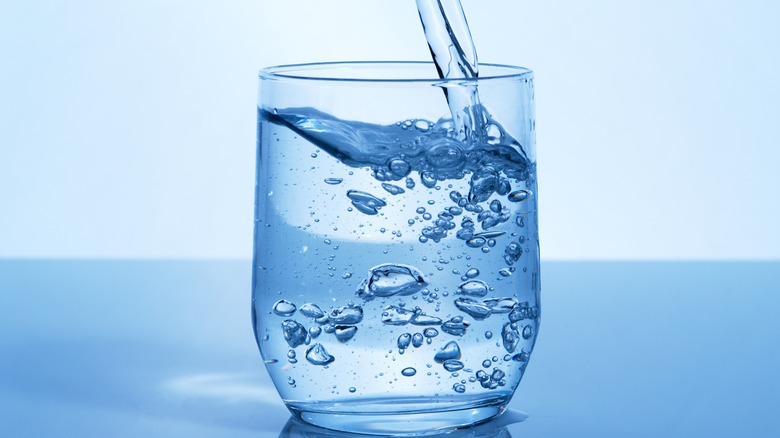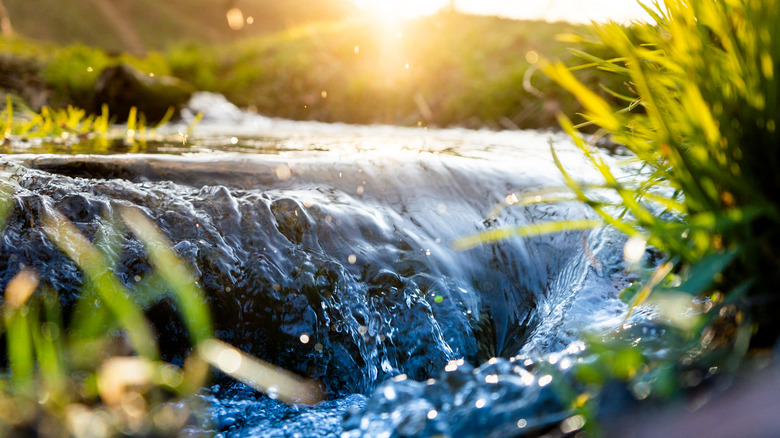What You Should Know Before Drinking 'Raw' Water
Those of us living in highly industrialized countries enjoy the privilege of not having to concern ourselves with where our next glass of clean water is coming from. Millions across the U.S. get tap water from a public community water system that's strictly regulated by the Environmental Protection Agency (EPA), and the Centers for Disease Control and Prevention (CDC) claims that we boast some of the cleanest drinking water in the world.
However, not everyone in the U.S. benefits from top-quality tap water. A 2018 study published in PNAS examined national trends in drinking water quality violations and established that in 2015, 9% of community water systems studied violated health-based water quality standards, affecting 21 million people. During each of the past 34 years, between nine and 45 million people were possibly affected by water quality violations.
For five months in 2008, the Associated Press (AP) investigated the drinking water supplies for 24 major cities and, in them, found traces of prescription drugs like sex hormones, antibiotics, antispazmodics, and mood stabilizers (per Medical News Today). Studies haven't concluded that these contaminants are harmful to humans, but some experts worry about adverse, long-term effects (per ABC News).
Additionally, a 2015 article released by the EPA, found personal-care products such as cosmetics, fragrances, sunscreens, and pharmaceuticals — including prescription, over-the-counter, and veterinary medications as common drinking water contaminants. The document states that the EPA hasn't yet determined whether standards for these contaminants are necessary, and that the health implications of long-term exposure to them remains unknown.
Raw water as a potential solution
Reports that our water has chemical additives and traces of prescription medications can be jarring, even if there's no conclusive evidence that anyone has been negatively affected. So it's not too hard to understand why some might be looking for something more natural. According to Everyday Health, raw water retailers are bottling water straight from select spring heads, claiming this eliminates the need for chemical sterilization and saves the water from surface-level contaminants. Healthline points out that in order for water to reach your grocery store shelves, it must pass certain safety standards set by the U.S. Food and Drug Administration, so raw water being sold legally is not without regulation. And while advocates of raw water claim that unfiltered spring water is full of beneficial probiotics and minerals that would otherwise be eliminated through treatment, naysayers of the trend believe it's still risky business.
While raw water retailers are not bottling contaminated water, without treatment, it's possible that raw water may carry bacteria, parasites, and other pathogens like giardia and E. coli that may cause diarrhea, nausea, and life-threatening illnesses like cholera (per Medical News Today).
You may ultimately decide raw water isn't worth the risk, but if your desire for chemical-free water wins out, it's essential that you choose products from reputable companies. If you're interested in giving raw water a try, Medical News Today notes that short-term use of raw water is unlikely to be harmful to your health.


